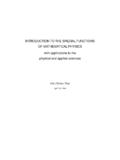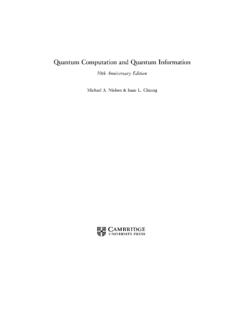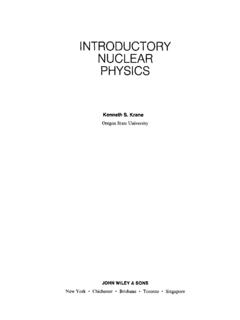Transcription of Indira Gandhi Delhi Technical University For Women
1 First Year Scheme and Syllabus as per CBCS, Academic Year 2019-20 Indira Gandhi Delhi Technical University For Women (Established by Govt. of Delhi vide Act 09 of 2012) (Formerly Indira Gandhi Institute of Technology) Kashmere Gate, Delhi -110006 Course Structure for B. Tech First Year (Common courses for all B. Tech Programs) First Semester S. No. Code Subject L-T-P Credits Category 1. BAS-101 Applied Mathematics-I 3-1-0 4 BAS 2. BAS-103 Applied Physics-I 2-1-2 4 BAS 3. BAS-105 Applied Chemistry 2-1-2 4 BAS 4. BMA-110/ BEC-110 Engineering mechanics / Basic Electrical Engineering 3-0-2 4 OEC 5. BMA-120/ BMA-130 Workshop Practice/ Engineering Graphics Lab 0-1-2 2 OEC 6. HMC-110/ BCS-110 Humanities and Social Science/ Programming in C Language 3-1-0/ 3-0-2 4 HMC/ OEC Total 22 Second Semester S.
2 No. Code Subject L-T-P Credits Category 1. BAS-102 Applied Mathematics-II 3-1-0 4 BAS 2. BAS-104 Applied Physics-II 2-1-2 4 BAS 3. BAS-106 Environmental Science 2-1-2 4 BAS 4. BEC-110/ BMA-110 Engineering mechanics / Basic Electrical Engineering 3-0-2 4 OEC 5. BMA-130/ BMA-120 Workshop Practice/ Engineering Graphics Lab 0-1-2 2 OEC 6. BCS-110/ HMC-110 Programming in C Language / Humanities and Social Science 3-0-2/ 3-1-0 4 HMC/ OEC Total 22 First Year Scheme and Syllabus as per CBCS, Academic Year 2019-20 APPLIED MATHEMATICS I Course Code: BAS-101 Contact Hours: L-3 T-1 P-0 Course Category: BAS Credits: 4 Semester: 1 Introduction: Mathematics is used in almost every field of engineering be it computer science and information technology wherein it may be used in modeling, machine learning, image processing etc.
3 , or by electrical engineers for signal processing, control engineering or by mechanical engineers for design, modeling, manufacturing etc. But the problem faced by engineers is to how to apply the basic mathematical concepts in engineering problem which they would be dealing in coming years. The course covers the various topics of engineering mathematics such as matrices, sequences and series, calculus of functions of more than one variable and vector calculus. Course Objective: The students will be made familiar with the concepts of matrices, sequences and series. To provide students with skills and knowledge of calculus of functions of several variables and vector calculus which would enable them to devise solutions for given situations they may encounter in day to day engineering problems.
4 Prerequisite: Fundamentals of matrices, calculus of functions of single variable, vectors. Course Outcomes: Having successfully completed this course, the student will be able to Build a sound foundation and have comprehensive knowledge of matrices, Infinite series, Fourier series, calculus of functions of more than one variable and vector calculus. Evaluate rank, inverse, Eigen values and Eigen vectors of a matrix. Determine the convergence/divergence of an infinite series, approximation of functions and error estimation using Taylor s series expansion. Analyze some mathematical problems encountered in engineering applications . Learn various concepts and applications of maxima and minima, multiple integrals, gradient, divergence, curl, Green s theorem, Gauss divergence theorem and Stoke s theorem.
5 Pedagogy: Apart from class room teaching, main focus is to enhance problem solving ability supported by weekly assignments and discussing individual s doubts. First Year Scheme and Syllabus as per CBCS, Academic Year 2019-20 Contents UNIT-I 10 Hours Matrix Algebra: Elementary operations and their use in getting the rank, Inverse of a matrix and solution of linear simultaneous equations, orthogonal, symmetric, skew-symmetric, hermitian, skew-hermitian, normal & unitary matrices and their elementary properties, linear transformations, eigen values and eigenvectors of a matrix, Cayley Hamilton theorem, diagonali-zation of a matrix. UNIT-II 12 Hours Sequences and series: Introduction to sequences and Infinite series, tests for convergence/divergence, Limit comparison test, ratio test, root test, Raabe s test, log test, Gauss s test, Cauchy integral test, alternating series, absolute convergence and conditional convergence.
6 Fourier series and its convergence, Fourier half range series. UNIT-III 10 Hours Differential Calculus: Functions of several variables: Limits, continuity and differentiability, Successive differentiation, Leibnitz theorem, Partial differentiation, Euler s Theorem for homogenous equations. Composite functions, Change of variables, Taylor s and Maclaurin s Series, maxima and minima, Lagrange s method of undetermined multiplier. UNIT-IV 10 Hours Vector Calculus : Vector point functions, Gradient, Divergence and Curl and their physical interpretation, Line integrals, Multiple Integrals, Change of order of integration, Surface and Volume integrals, Green s, Gauss Divergence and Stoke s theorems (without proof). Text Books 1. D. G. Zill and W. S. Wright, Advanced Engineering Mathematics , 6th Edition, The Jones and Bartlett Learning Publishers, 2016.
7 2. Jain R. K. and Iyengar S. R. K., Advanced Engineering Mathematics , 4th Edition, Narosa Publishing House Pvt. 3. Grewal, B. S. , Higher Engineering Mathematics , 44th Edition, Khanna Publishers, 2017 Reference Books 1. George B. Thomas Jr., Ross L. Finney, Calculus and Analytic Geometry , 9th Edition, Pearson Education India, 2010 2. Greenberg M., Advanced Engineering Mathematics , 2nd Edition, Pearson Education, 1998. 3. Kreyszig E. , Advanced Engineering Mathematics , 10th Edition, John Wiley & Sons, 2010. First Year Scheme and Syllabus as per CBCS, Academic Year 2019-20 APPLIED PHYSICS - I Course Code: BAS-103 Contact Hours: L-2 T-1 P-2 Course Category: BAS Credits: 4 Semester: 1 Introduction: Applied physics is a subject rooted in the basic concepts of the physics with the utilization of scientific principles in various technological applications , devices and systems.
8 The course covers the wide ranging topics of the physics which form the underlying principles of classical mechanics , quantum mechanics , optics and its applications . The syllabus is a perfect blend of classical laws with modern devices which will enhance the ability of students to apply fundamentals to various applications . Course Objectives: To introduce the students with the wide ranging topics of the physics which form the underlying principles of classical mechanics , quantum mechanics , optics and its applications . To develop their ability of solving real world problems, going a step ahead of what they have studied in school. To impart them an in-depth knowledge of everyday systems and phenomena surrounding them and underlying principles of physics behind those phenomenon.
9 To enhance the ability of students to apply fundamentals to various applications . Pre-requisites: None Course Outcomes: Having successfully completed this course, the student will be able to Gain knowledge and comprehend various fundamentals of physics. Build a sound foundation of applications of physics. Identify and analyze relationship between different principles of physics and integrate them for various applications . Evaluate and apply the quantitative and qualitative aspects of physics to innovate devices in the constantly competitive Technologies. The comprehensive list of experiments in the lab will correlate and enhance the analytical skills and develop the ability of the students to think beyond the usual. Pedagogy: Classroom teaching which focuses upon relating the textbook concepts with real world phenomena, along with periodic tutorial classes to enhance the problem-solving ability.
10 = First Year Scheme and Syllabus as per CBCS, Academic Year 2019-20 Theory Contents UNIT-I 7 Hours Unit 1: Classical mechanics Simple Harmonic Oscillator, Damped Harmonic Oscillator, Forced Harmonic Oscillator, Coupled Oscillations (Two body mass-spring problem), Central and Non-Central Forces. UNIT-II 7 Hours Optics: Coherent Sources, Temporal and Spatial Coherence, Interference due to Division of wave-front and Division of Amplitude, Interference in Parallel Thin Films, Newton s Rings, Fresnel Diffraction at Straight Edge, Fraunhoffer Diffraction due to Single Slit, N Slits, Diffraction Grating. Polarization, Double Refraction, Nicol Prism, Production of Plane, Elliptically and Circularly Polarized Light. UNIT-III 7 HOUR quantum mechanics : De Broglie Hypothesis, Heisenberg Uncertainty Principle, Postulates of quantum mechanics , Wave Function and Properties, Time Independent, and Time Dependent Schrodinger Wave Equation, Particle in 1-D Box.



